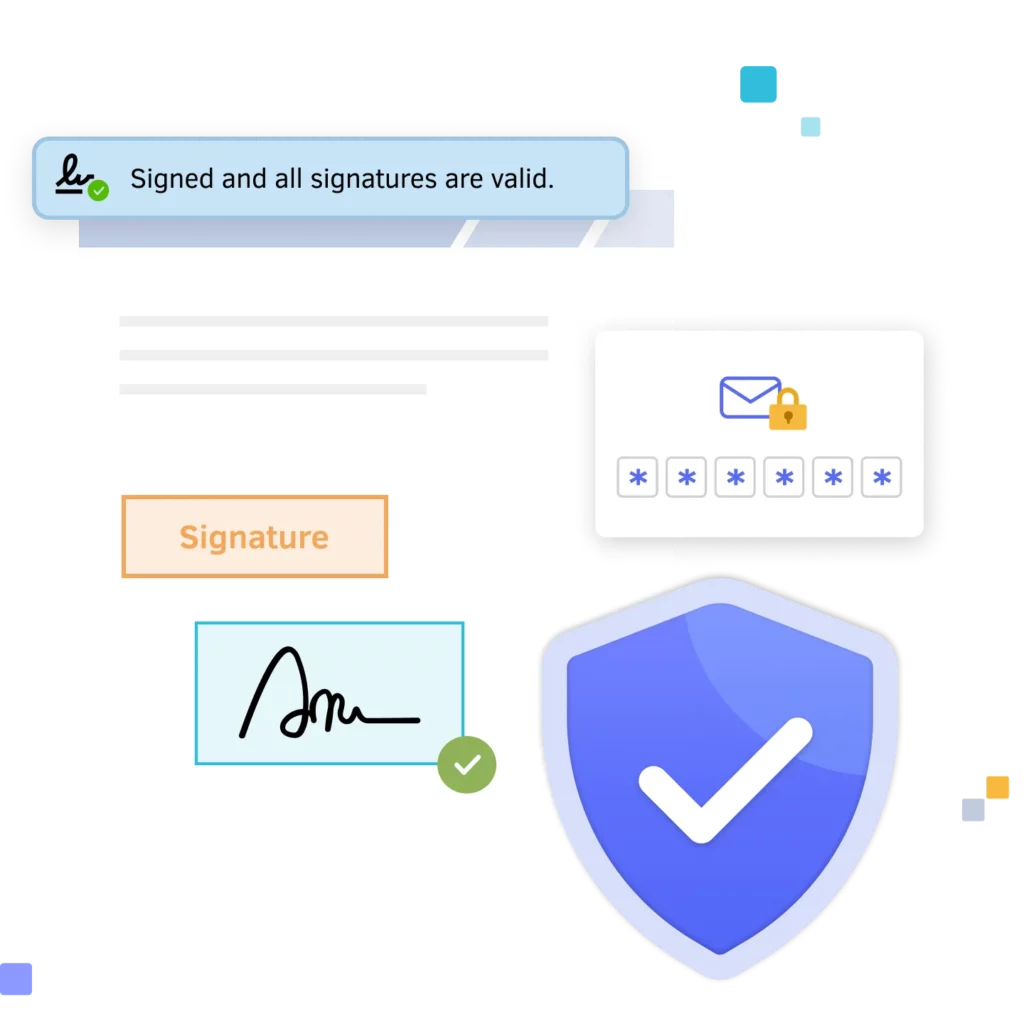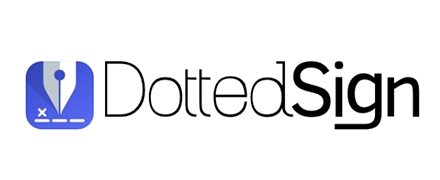Understanding the 6 Elements of a Contract and How to Sign Capacity Contracts
Contracts are the backbone of legal agreements, providing the framework within which parties can enter into binding commitments. Whether you are entering a business deal or a personal agreement, understanding the six elements of a contract is crucial for ensuring that all parties involved have a clear understanding of their responsibilities and rights. In today’s digital age, knowing how to sign capacity contracts electronically has become increasingly important.
This article explores each of these elements in detail, highlights their significance in creating a valid contract, and delves into the nuances of contractual capacity. We will also discuss how modern solutions like DottedSign can simplify the process of signing capacity contracts while ensuring legal compliance.
Table of Contents
Introduction to Contracts and Their Importance
Contracts serve as the legal foundation for most business and personal transactions. They define the terms of agreements, outline the obligations of each party, and provide legal remedies in case of breaches. Without valid contracts, enforcing agreements would be challenging, leading to uncertainty and disputes.
In recent years, there has been a significant shift towards digital contracts. According to a report by Statista, the global e-signature market size is expected to reach $14.1 billion by 2026, indicating the growing acceptance of electronic contracts. This shift requires understanding how to sign capacity contracts electronically using modern best practices and state-of-the-art, legally compliant solutions.
What are the Six Elements of a Contract?
A valid contract consists of six essential elements: Offer, Acceptance, Consideration, Intention to Create Legal Relations, Certainty, and Capacity. Each element plays a critical role in forming a legally enforceable agreement.
Detailed Explanation of Each Element
- Offer: One party proposes terms to another. The offer must be clear, definite, and communicated to the offeree.
- Acceptance: The offeree agrees to the terms of the offer without modifications. Acceptance must mirror the offer precisely for a contract to be valid.
- Consideration: This is the value exchanged between parties, which can be money, services, or goods. Consideration must be lawful and adequate.
- Intention to Create Legal Relations: Both parties must intend for the agreement to be legally binding. Social and domestic agreements typically lack this intention.
- Certainty: The terms of the contract must be clear and specific. Ambiguities can render a contract unenforceable.
- Capacity: Parties must have the legal ability to enter into a contract. This includes being of legal age (18 years or older) and sound mind.
Practical Examples Illustrating Each Element
- Offer and Acceptance: A company offers to sell 100 units of a product at a specified price, and the buyer accepts these terms.
- Consideration: A service provider agrees to perform consulting services in exchange for payment.
- Intention: Two parties sign a formal contract for the sale of goods, explicitly stating that they intend for the agreement to be legally binding and enforceable in court.
- Certainty: A contract specifies delivery dates, payment terms, and quality standards in detail.
- Capacity: An adult individual, defined as 18 years or older, enters into a loan agreement with a bank, fully understanding the obligations.

Ensuring a Legally Enforceable Agreement (What Constitutes a Valid Contract?)
For a contract to be considered valid and enforceable, it must encompass all six elements of a contract. These elements serve as the foundation of any binding agreement. The enforceability of contracts hinges on these elements. Any missing element can compromise the contract’s legality. The offer and acceptance form the mutual consent necessary for the agreement, while consideration refers to the value exchanged between the parties.
Additionally, the contract must comply with relevant laws and regulations, such as the Uniform Commercial Code (UCC) for commercial transactions in the United States. The intention to create legal relations ensures that the parties are serious about their commitments, and certainty provides clarity about the contract terms. Capacity is crucial as it determines whether the parties have the legal ability to enter into a contract. Without these elements, a contract may be deemed incomplete or unenforceable.
Consequences of Missing Elements
When a contract lacks one or more of the six elements, its validity is compromised. A contract may be voidable or even void if essential elements like capacity or consideration are missing. A void contract is unenforceable from the beginning, while a voidable contract can be enforced or voided at the option of one party. This can lead to legal disputes and financial losses.
Case Studies of Invalid Contracts
- If a minor enters into a contract without parental consent, the contract may be voidable at the minor’s discretion.
- An agreement lacking clear terms (certainty) may be deemed unenforceable due to vagueness.
Common Misconceptions About Contracts
Many believe that verbal agreements are not valid contracts. While written contracts are preferable for evidence, verbal agreements can be legally binding if they contain all the necessary elements. However, certain types of contracts, like those involving real estate, must be in writing under the Statute of Frauds.
Legal Precedents Supporting Enforceability
Courts have consistently upheld contracts that meet all six elements. In the landmark case of Lucy v. Zehmer (1954), the court enforced a contract for the sale of land because all elements were present, despite one party claiming it was a joke.
Understanding Contractual Capacity
What is Contractual Capacity?
Contractual capacity refers to an individual’s ability to understand the terms and implications of a contract and to be legally bound by it. This means the person must understand the contract’s terms and the consequences of entering into the agreement.
Why is Legal Capacity Important in Contract Law?
This capacity is a cornerstone of contract law, as it ensures that the parties entering the agreement have the capacity to contract. It ensures that only those who understand and appreciate the nature of the agreement and its consequences are bound by it.
It is vital for ensuring that contracts signed are fair and that all parties are accountable for their commitments. Without legal capacity, a contract may be deemed unenforceable, as it would be unjust to hold someone accountable for an agreement they could not fully understand or consent to.
Thus, understanding contractual capacity is essential when considering how to sign capacity contracts, as it directly impacts the validity of the agreement.

Who Lacks the Legal Capacity to Enter Contracts?
Certain individuals may lack the legal capacity to enter into contracts.
- Minors: Individuals under the age of 18 typically lack capacity.
- Mentally Incapacitated Individuals: Those suffering from mental illnesses or cognitive impairments.
- Intoxicated Persons: Individuals under the influence of drugs or alcohol at the time of signing.
A minor cannot legally enter into most contracts, as they are not recognized as having the legal age or maturity to understand the obligations involved. Similarly, individuals with mental incapacity are considered to lack the capacity to contract, as they may not fully comprehend the consequences of their actions. These restrictions are in place to protect individuals from entering agreements that could be unfair or harmful.
- How Does Mental Capacity Affect the Ability to Sign a Contract?
Mental capacity plays a significant role in determining an individual’s ability to sign a contract. It involves the cognitive ability to understand the nature and terms of the contract, as well as the potential outcomes of entering into the agreement.
An individual lacking capacity due to mental impairment may not be able to legally bind themselves to a contract, as their decision-making ability is compromised. This consideration is especially important in cases involving elderly individuals or those with mental health conditions, where capacity assessments may be necessary to ensure the validity of the agreement.
- What are the Implications of Signing Without Capacity?
Signing a contract without the necessary capacity to contract can have significant legal implications. Contracts entered into by parties lacking capacity are generally voidable.
This means that the individual or their guardian can choose to affirm or void the contract, depending on their interests.
Moreover, engaging in an agreement without capacity could lead to disputes, as the contract is not legally enforceable. This underscores the importance of ensuring that all parties have the requisite capacity before signing the contract.
3 Tips: How to Sign Capacity Contract?
Ensuring All Parties Have Legal Capacity when Signing Contracts
To ensure that the other party has the necessary contractual capacity, several steps must be taken during the contract process. Firstly, it is crucial to verify the legal status of the individuals involved. This includes checking the age of the parties and assessing their mental state.
Furthermore, clear communication is essential to ensure that everyone understands the terms and implications of the contract.
If there is any doubt about an individual’s capacity, seeking legal advice or involving a third party to witness the signing can provide additional assurance. These measures help prevent disputes arising from lacking capacity and ensure that the contract may be enforced if necessary.
Steps to Verify Capacity Before Signing
- Request Proof of Identity: Ensure the individual is of legal age.
- Assess Mental State: Engage in conversation to gauge understanding.
- Involve Legal Guardians: If dealing with minors or incapacitated persons, involve guardians or legal representatives.
The Role of Digital Signatures in Modern Contracting
Legal Recognition of Electronic Signatures
Electronic signatures have the same legal standing as handwritten signatures in many jurisdictions, including the United States, under the E-SIGN Act and Uniform Electronic Transactions Act (UETA).
Advantages of Using E-Signature Platforms
- Convenience: Sign documents anytime, anywhere.
- Security: Advanced encryption protects your documents.
- Efficiency: Speeds up the contract signing process. (Up to 82% of agreements completed in less than a day, and 50% in less than 15 minutes.
Using Electronic Signatures to Sign Capacity Contracts
Electronic signatures are legally recognized under laws like the Electronic Signatures in Global and National Commerce Act (E-SIGN Act). Platforms like DottedSign provide tools to verify identity and consent, ensuring that electronically signed capacity contracts are valid.

How DottedSign Facilitates Signing Capacity Contracts
DottedSign provides tools to verify identity and consent, ensuring that electronically signed capacity contracts are valid.
- Features That Ensure Legal Compliance: Identity verification and audit trails record each step of the signing process for legal evidence.
- Verifying Signer Identity and Capacity: DottedSign employs robust methods to verify signer identity and ensure signing capacity, offering enhanced security and legal compliance:
- OTP Authentication: By implementing One-Time Password (OTP) authentication, DottedSign ensures the authenticity of the signer’s identity. This verification method ensures that each signature is genuine and from the authorized individual, providing you with the integrity of your signed documents.
- GDPR Compliance: DottedSign adheres to General Data Protection Regulation (GDPR) guidelines, emphasizing individual consent at every step of the signing process. Real-time tracking capabilities provide transparency, allowing both signers and senders to maintain control over their data.
- ISO 27001 Certification: DottedSign is ISO 27001 certified and recognized by information security management systems. By conforming with ISO/IEC 27001, DottedSign demonstrates that its data security risk management framework is built upon top-notch practices. This ensures that the company’s approach to handling data security risks aligns with the rigorous standards outlined in the International Standard.
- Security Certification: Digital certificates issued by an AATL-authorized Certificate Authority (CA) safeguard the authenticity of signer identities and validate signatures..
- HIPAA Compliance: For industries handling sensitive health information, DottedSign complies with the Health Insurance Portability and Accountability Act (HIPAA), ensuring that electronic signatures meet stringent regulatory requirements.

Ensuring Contracts are Legally Binding with DottedSign
- Audit Trails and Document Security
Every action taken on a document is recorded, providing a comprehensive audit trail that can be used in legal proceedings if necessary.
- Compliance with E-Signature Laws
DottedSign complies with international e-signature laws, ensuring your contracts are legally binding across borders.
What Are the Key Components of a Contract?
Essential Clauses and Provisions
- Termination Clause: Outlines how parties can exit the contract.
- Dispute Resolution: Specifies how disputes will be resolved.
- Confidentiality Agreement: Protects sensitive information.
These components are crucial for clarity and can significantly affect the enforceability of a contract. Ambiguous language can lead to misinterpretation and disputes.
Customizing Contracts to Fit Specific Needs
Every contract should be tailored to the specific agreement between the parties. Generic contracts may lack necessary provisions, so it is important to customize them accordingly.
The Importance of Clear and Precise Language
Ambiguous language can lead to misinterpretation and disputes. Clear terms help ensure all parties have the same understanding. Ensuring clarity and completeness in these components is vital for upholding the enforceability of contracts.
Avoiding Ambiguities and Misinterpretations
Define key terms and use consistent language throughout the contract. Consider involving a legal professional for drafting complex agreements.
Are All Contracts Required to Have the Same Components?
While the fundamental components are consistent across most contracts, the specific requirements can vary depending on the nature of the agreement and the jurisdiction. For example, oral contracts may be valid in certain circumstances, but written agreements are often preferred for clarity and proof. The nature of the contractual relationship and the complexity of the terms can also influence which components are emphasized. Understanding the specific needs of each contract type is crucial for drafting a clear and enforceable agreement.
Step-by-Step Guide: How Does One Enter Into a Binding Contract?
- Draft the Contract: Include all essential elements and components.
- Review Terms: Both parties should thoroughly review the contract.
- Negotiate if Necessary: Make adjustments to terms as agreed upon.
- Sign the Contract: Use a reliable platform like DottedSign for electronic signatures.
- Store the Contract: Keep records securely for future reference.
To enter into a binding contract, parties must ensure that all legal requirements are met. This involves drafting a clear offer and obtaining unequivocal acceptance, ensuring consideration is present, and verifying the legal capacity of all parties.
Additionally, the intention to create legal relations must be evident. Documenting these aspects in writing and having both parties sign the contract can further reinforce the agreement’s binding nature. Legal advice may also be sought to confirm that the contract meets all necessary legal standards.
Best Practices for Negotiation and Agreement
- Open Communication: Discuss terms openly to avoid misunderstandings.
- Legal Counsel: Consult a lawyer for significant contracts.
Common Mistakes That Might Void a Contract
Pitfalls to Avoid During Contract Drafting
- Omitting Essential Elements: Missing any of the six elements of a contract.
- Unclear Terms: Vague language that leads to ambiguity.
- Lack of Capacity: Not verifying the other party’s ability to contract.
Common mistakes that might void a contract include errors in the agreement’s terms, lack of capacity, and absence of consideration. Misunderstandings or misrepresentations can lead to disputes over the contract’s validity. Furthermore, failure to adhere to formalities, such as signing requirements, can undermine the contract’s enforceability.
Addressing these potential pitfalls and ensuring clear communication and documentation are essential for maintaining a valid and binding contract.
The Role of Legal Counsel
Legal professionals can help draft contracts that are clear, enforceable, and compliant with relevant laws.
Additionally, seeking legal counsel can help identify potential issues and provide guidance on best practices for contract formation. By taking these steps, parties can confidently enter into agreements that are both legally binding and aligned with their interests.
Importance of Documentation and Record-Keeping
Proper documentation can provide evidence of the contract’s validity and the parties’ intentions, which is crucial in legal disputes. Keeping thorough records of all communications and agreements helps in maintaining transparency and can be invaluable if disputes arise.
Parties can ensure their contract is enforceable by meticulously addressing all essential elements and components. This involves clear drafting, thorough communication, and careful verification of each party’s capacity and consent.

The Rise of Electronic Contracts and Their Legal Standing
Recent studies indicate that a significant majority of businesses are transitioning to digital contracts and adopting e-signature solutions to streamline operations. According to Forrester Research, e-signatures can reduce the signature process by up to 80% and save up to $20 per document through reduced paper and processing costs.
Electronic contracts are governed by laws like the E-SIGN Act and UETA in the U.S., which give them the same legal weight as paper contracts.
Case Studies: Successful Use of DottedSign
Real-Life Examples of Contract Signing
- Small Business Growth & Global Agreements: Businesses on G2 report that the Time to Implement is typically under 1 day, they see a Return on Investment in less than 6 months, and they rate the Ease of Setup at a perfect 10 out of 10.
Testimonials from Satisfied Users
“DottedSign allows me to get contracts signed in a professional and secure manner. This sets the impression that I care about security and professionalism for my clients.” — Shannon South, CEO of Small-Business (<50 emp.)
Start Your Trial and Grow Your Business with DottedSign
Benefits of Choosing DottedSign
- User-Friendly Interface: Easy for all parties to navigate.
- Secure and Compliant: Meets all legal requirements for electronic signatures.
- Cost Efficiency Improvements: Saves redundant man hour costs and paper usage.
How to Get Started Today
Visit DottedSign to start your free trial and experience the ease of signing capacity contracts electronically.
Frequently Asked Questions
Answers to Common Queries About Contracts and Capacity
Q: Can a contract be valid if signed electronically?
A: Yes, electronic signatures are legally recognized under laws like the E-SIGN Act.
Q: What happens if one party lacks capacity?
A: The contract may be voidable at the option of the incapacitated party.
Q: How does DottedSign ensure the security of my documents?
A: DottedSign uses advanced encryption and provides detailed audit trails for all documents.
Conclusion: Empowering Your Business with Legally Binding Contracts
Understanding the six elements of a contract and how to sign capacity contracts is essential in today’s fast-paced, digital world.
By ensuring all elements are present and leveraging tools like DottedSign, you can streamline your contract process while ensuring secure signing, robust identity verification, and legal compliance.
DottedSign not only enhances the efficiency of contract execution with its user-friendly interface but also provides advanced security measures such as OTP authentication, GDPR compliance, and ISO 27001 certification. These features safeguard your documents, protect sensitive data, and ensure that your contracts are legally enforceable in today’s digital landscape.
Do not let legal complexities hinder your business growth. Start Your Trial and Start Growing Your Business with DottedSign today.





